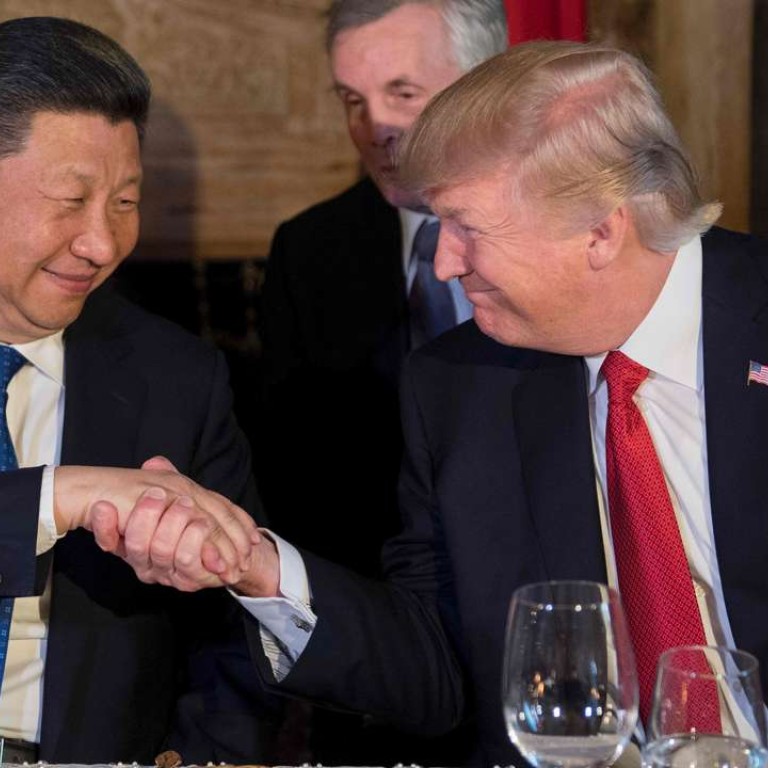
China suggests new platform for regular dialogue with US
Beijing offers replacement for defunct Strategic and Economic Dialogue at first day of Florida summit
Chinese President Xi Jinping opened the door for new dialogue between China and the United States on many of their thorniest issues – including trade and cybersecurity – on the first day of his summit with US President Donald Trump, who welcomed him warmly as a friend.
Xi’s proposal for four parallel consultation mechanisms would replace the now-defunct Strategic and Economic Dialogue (S&ED) which helped contain divergent and often conflicting interests between the two nations through regular meetings since 2009, diplomatic observers said.
Xi was quoted by Xinhua as saying that both sides should “make full use of the newly established high-level dialogue and cooperation mechanisms” to maintain close contactsand push for concrete outcomes. Trump also accepted Xi’s invitation to visit China this year, it reported.
Trump extended a cordial welcome to Xi and his entourage on Thursday, making warm remarks that contrasted with his previous harsh tone against Beijing.
“It is a great honour to have the president of China and his incredibly talented wife,” Trump said at a welcoming dinner for Xi. “We had a long discussion already. So far, I have gotten nothing. Absolutely nothing, but we have developed a friendship,” Trump said. “I think, long-term, we are going to have a very, very great relationship and I look very much forward to it.”

Xinhua did not elaborate further on the dialogue mechanisms, saying only that they would cover security and diplomacy, economics and trade, law enforcement and cybersecurity, and social and people-to-people exchanges.
Observers said the announcement was likely aimed at highlighting the initial success of the first meeting between Xi and Trump at the Mar-a-Lago resort.
The fate of more than 100 existing bilateral consultation mechanisms has long been viewed as a priority for both leaders to address in their summit.
Tao Wenzhao, of the Chinese Academy of Social Sciences, said the new mechanisms were announced in a similar way to the establishment of the S&ED at the first summit between Barack Obama and Hu Jintao in 2009. “Despite sketchy details about how exactly these mechanisms will be different from the old ones, it is certain they will be operational very soon,” he said.
Ren Xiao, an international relations expert at Fudan University in Shanghai, said the new mechanisms were expected to be headed by Vice-Premier Wang Yang and State Councillor Yang Jiechiand Secretary of State Rex Tillerson and Treasury Secretary Steven Mnuchin.
“The new dialogues include all the elements listed by the S&ED, but this time, cybersecurity was elevated to become a separate topic with law enforcement, highlighting that both sides all take these issues very seriously,” Ren said.
The much-anticipated summit was overshadowed by a US cruise missile strike in Syria, the first American military attack against the Assad regime.
Steve Tsang, director of the SOAS China Institute in London, said Xi would have preferred such a strike not happen during his US visit, as it suggested the US was not respecting China’s position on Syria, which favours dialogue.
But it also diverted the attention of the Trump team away from exerting pressure on China, creating an opportunity for a grand bargain with the US, especially over trade, he said.
While both leaders were expected to briefly touch on the Syrian issue in their formal talks on Friday, their priority would still be North Korea and the trade imbalance between their nations.
Additional reporting by Minnie Chan


